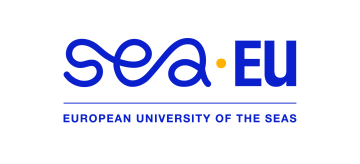Dr. Ante Prkić (male): is Professor at Department for Analytical Chemistry from 2014 at Faculty of Chemistry and Chemical Technology. He has been assigned as lecturer for curse of Analytical Chemistry (undergraduate study of Chemistry, Chemical Technology and Food Technology), Analysis of Real Samples (undergraduate study of Chemistry) and Physical Methods of Analysis and Chemometrics (Graduate study of Chemistry). His main research topics are quality and health properties of food products (e.g. teas and olive oils) as well as development of new potentiometric and spectrophotometric methods for pharmaceuticals’ determination. PhD study finished at University of Zagreb 2013. He is leader of Installation Research project Development of new membranes for ion-selective electrodes enriched with nanoparticles of metals and metal oxides – NANOISEM (2018.-2023.). He is leader of work package from H2020 project Next generation test bed for upscaling of microfluidic devices based on nano-enabled surfaces and membranes at Univesity of Split. He is author of many papers in peer-reviewed international and national journals.
Josipa Giljanović - CHEMISTRY, ANALYTICAL; ELECTROCHEMISTRY
Vesna Sokol - CHEMISTRY, PHYSICAL; ELECTROCHEMISTRY
Boris-Marko Kukovec - CHEMISTRY, PHYSICAL; CRYSTALLOGRAPHY
Dražan Jozić – CRYSTALLOGRAPHY
Ante Prkić - CHEMISTRY, ANALYTICAL; ELECTROCHEMISTRY
Miće Jakić - POLYMER SCIENCE
Sanja Perinović-Jozić - POLYMER SCIENCE
Andrea Paut - CHEMISTRY, ANALYTICAL; ELECTROCHEMISTRY
The aim of the scientific group is the development of multifunctional potentiometric sensors in solid state with membranes with the addition of nano particles. A secondary objective is to develop simple potentiometric sensors for the determination of chemical species of interest that would have improved properties. Improved sensor performance will be based on simpler preparation of samples for analysis (does not matter discoloration and turbidity of the sample), improved chemical, physical and electrical properties. Mentioned properties will directly improve the robustness, increase the linear dynamic range response, improved response time, extended life sensors, allow continuous measurement in real time, lower the costs of the analysis by reducing the amount of solution, which reduces the amount of harmful waste chemicals. Then the development of new on-line and in-line analytical method for the determination of an analyte of interest, which will improve the standard analytical methodology for the determination of selected species by improving the selectivity, sensitivity, stability and durability of the sensor. The development of ion-selective electrodes will be performed by the development of new membrane with addition of nano particles and microemulsion gel membrane. Following step is miniaturization in order to simplify the manufacturing process of ion selective electrodes or increased applicability of sensors especially for the continuous monitoring of process conditions of production, direct reduction in production costs, which will ultimately lead to reductions in the cost analysis.
Various electroanalytical methods; atomic absorption spectroscopy, various x-rays techniques, DSC, TGA, IR spectrophotometry
Prkić, A., Vukušić, T., Giljanović, J., Sokol, V., Bošković, P., Lučić Lavčević, M., Mitar, I., Jakić. M. “Development of a New Potentiometric Sensor based on home made Iodide ISE Enriched with ZnO Nanoparticles and its Application for Determination of Penicillamine”. International journal of electrochemical Science, 13 (2018) 10894 – 10903, doi: 10.20964/2018.11.92
Prkić, A., Vukušić, T., Mitar, I., Giljanović, J., Sokol, V., Bošković, P., Jakić, M., Sedlar, A. “New sensor based on AgCl containing Iron Oxide or Zinc Oxide Nanoparticles for Chloride Determination”. International journal of electrochemical Science, 14 (2019) 861 – 874, doi: 10.20964/2019.01.71
Kukovec, B .M., Kodrin, I., Vojković, V., Popović., Z., 'Synthesis, X-ray structural, IR spectroscopic, thermal and DFT studies of nickel(II) and copper(II) complexes with 3-methylpicolinic acid. UV/Vis spectrophotometric study of complexation in the solution', Polyhedron (2013), 52, 1, 1349–1361.
Kukovec, B.M., Popović, Z., Pavlović, G., 'A new coordination mode of 6-methylnicotinic acid in trans-tetraaquabis(6-methylpyridine-3-carboxylato-O)cobalt(II) tetrahydrate', Acta crystallographica C 2007, 63, 1, m615–m617
Perinović Jozić, S., Jozić, D., Erceg, M., Andričić, B., Bernstorff, S., Nonisothermal crystallization of poly(L-lactide) in poly(L-lactide)/olive stone flour composites 683 (2019) 178440 Thermochimica Acta DOI: 10.1016/j.tca.2019.178440
